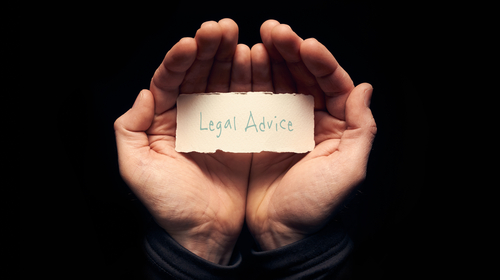Nonprofit sues over unauthorized practice rules that prevent free nonlawyer advice in debt cases

Image from Shutterstock.
A lawsuit filed Tuesday contends that New York’s rules banning the unauthorized practice of law interfere with a First Amendment right by nonlawyers to provide free legal advice to debt collection defendants.
The plaintiffs are nonprofit group Upsolve, which has created a training program for nonlawyers to provide the advice, and a South Bronx, New York, pastor who wants to participate as a volunteer counselor, report Reuters and the New York Times. The defendant is New York Attorney General Letitia James.
“Plaintiffs bring this action to vindicate their First Amendment rights to close this gap in the access to justice and to declare that New York’s UPL rules cannot be validly applied to prohibit the truthful and nonmisleading advice they would provide,” the Jan. 25 lawsuit says.
The plaintiffs contend that the UPL rules are unconstitutional as applied to Upsolve’s program, which the group calls the American Justice Movement.
Many low-income New Yorkers typically cannot afford a lawyer to respond to low-dollar demands in debt collection suits. Pro bono counsels are in short supply, and many defendants will simply fail to respond, the suit says. That leads to “default judgments entered without any adversarial testing, notwithstanding evidence that debt collection suits often lack merit or demand,” the suit says.
The pastor, the Rev. John Udo-Okon, is a Pentecostal minister at Word of Life Christian Fellowship International. His low-income congregants “don’t know how to fight back” when they face a debt collection suit, he told the New York Times.
“They just give up,” he said, only to learn “that their credit has been destroyed.”
Laurence Tribe, a professor emeritus at Harvard Law School who led an access-to-justice initiative in the Obama administration’s Department of Justice, said rules that prevent nonlawyers from helping people fill out simple legal forms help protect lawyers from competition.
“If you want a test case to bring sanity, as well as constitutional values to a process in which the legal profession has edged out both, this is it,” he told the New York Times.
The case, filed in federal court for the Southern District of New York, is Upsolve v. James.



